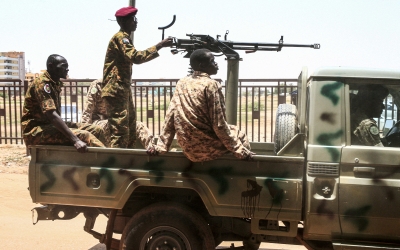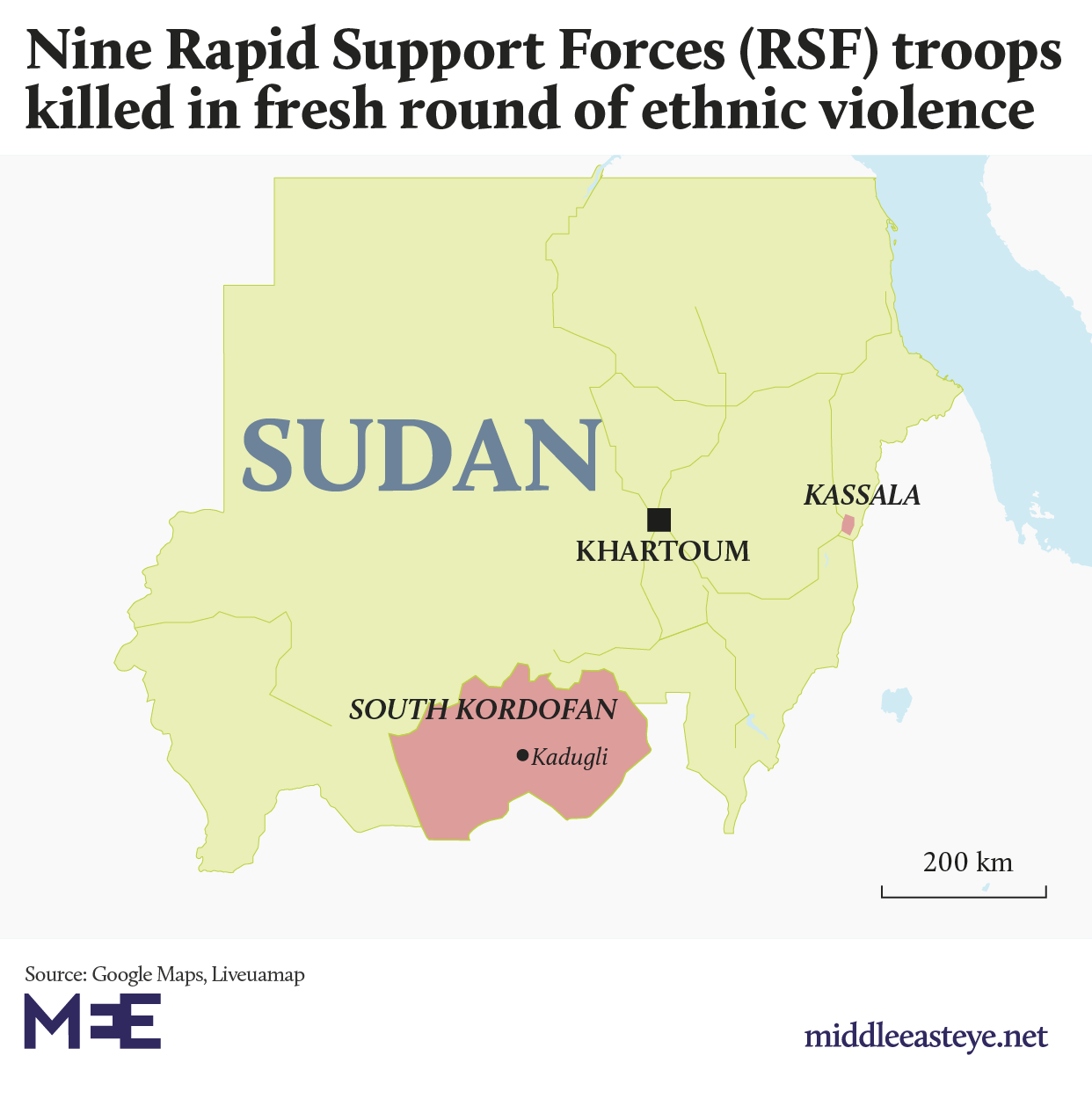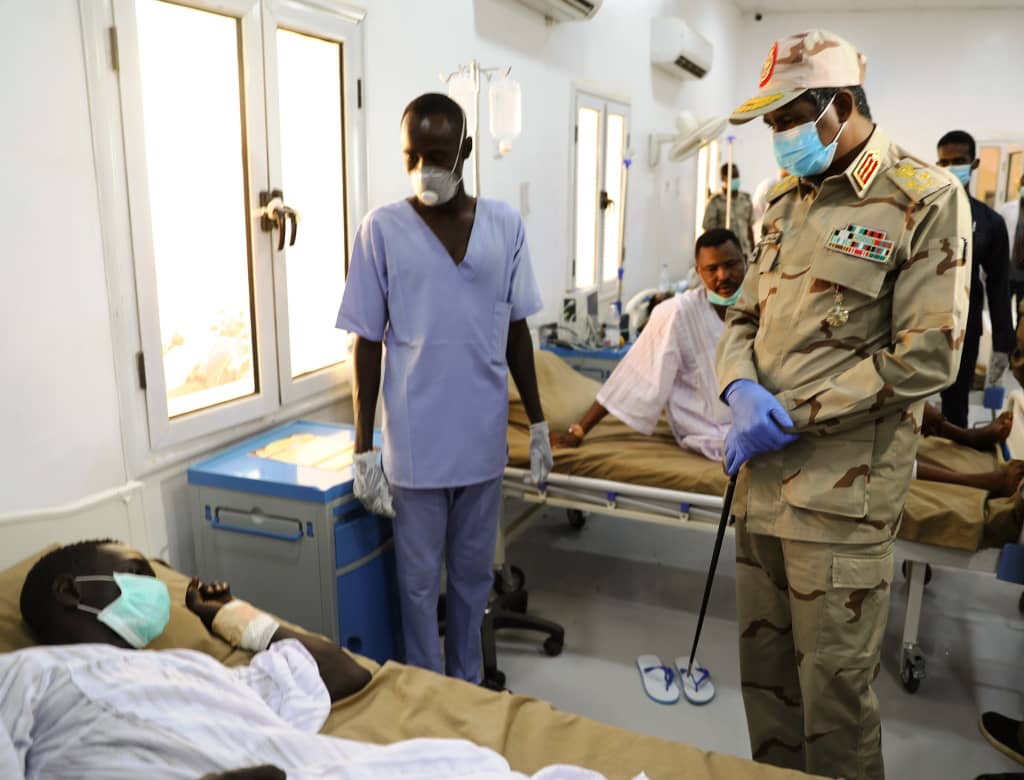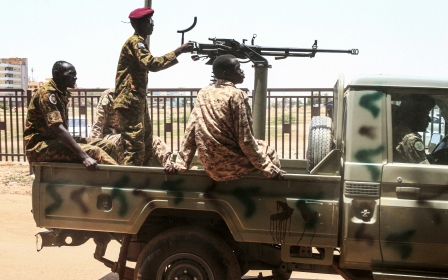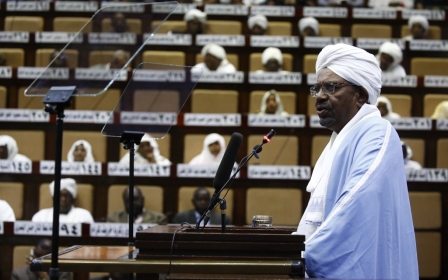Renegade Sudan army faction accused of killing RSF troops in clashes
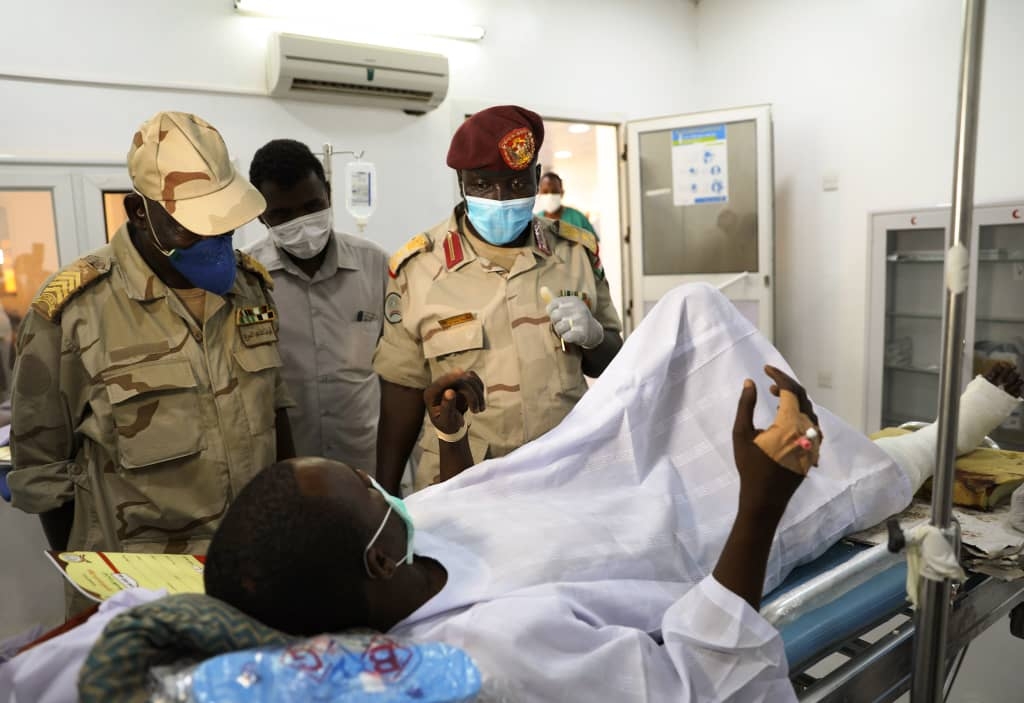
Nine members of Sudan’s government-aligned Rapid Support Forces (RSF) have been killed in clashes with a renegade faction of the army, an RSF spokesperson told Middle East Eye, as a fresh wave of ethnic violence erupted in the country’s south.
The violence marks the first instance of direct confrontation between the army and RSF and is thought to be the first time such a large number of RSF troops have been killed in ethnic violence.
New MEE newsletter: Jerusalem Dispatch
Sign up to get the latest insights and analysis on Israel-Palestine, alongside Turkey Unpacked and other MEE newsletters
However, eyewitnesses in the South Kordofan region where the attacks took place have accused the RSF of driving the violence by taking the side of an Arab tribe it has historic ties to.
At least 19 people were killed between Tuesday and Wednesday when a dispute over cattle between Arab Bagara and African Nuba spilled over into violence in the city of Kadugli in the South Kordofan region, which borders South Sudan.
The army and the RSF have been deployed throughout the country, including in Kassala, South Darfur and other states to stop the increase in tribal clashes, which has been fuelled by the absence of state authorities, poverty and competition over scarce resources.
The RSF is a paramilitary organisation that had long been considered loyal to deposed president Omar al-Bashir and the government.
Brigadier Gamal Gumaa, a spokesperson for the RSF, said 10 civilians had died in the incident along with nine RSF soldiers, but claimed that his troops had not been involved in the fighting.
“Our forces didn’t fight as the attack took place in the villages of a specific tribe and some RSF soldiers happened to be there visiting their families while on holiday,” he said.
Speaking to reporters on Wednesday, Gumaa blamed the attack on former members of the Sudan Liberation Movement/North Sector (SPLM-N), who had previously been integrated into the army.
'A group of the reintegrated former rebels that dissented from the SPLM-N has joined the tribal clashes and they supported ethnic groups in the dispute and that led to the bloody clashes'
- Brigadier Gamal Gumaa, RSF
“A group of the reintegrated former rebels that dissented from the SPLM-N has joined the tribal clashes and they supported specific ethnic groups in the dispute and that led to the bloody clashes,” he added.
Another source from the local government of South Kordofan also said that the renegade soldiers had broken away to side with their own tribe in the clashes.
He further said that the situation was calm but still tense and the central government was expected to send military reinforcements to the state to fully control the situation.
'Radical approach'
The violence comes days after the army was sent to the Kassala province in Eastern Sudan as three people were killed and 79 others were wounded when members of the Beni Amir and Nuba tribes clashed.
Violence between the Arab tribe Al-Raziqat and African tribe Al-Falata claimed 30 lives last week in Kassala after a disagreement over livestock.
Sudan has been beset with ethnic conflict for years, sometimes between Arab and African tribes but also between cattle herders and sedentary farming communities.
On Monday, Prime Minister Abdalla Hamdok described the clashes as “regrettable” and called for a radical approach to establish peace amongst tribes across the country.
"The tribal conflict that is taking place in some areas of our dear country requires radical treatment through a clear and holistic approach for a comprehensive peace, as well as the speeding up selection of civilian governors, and establishing of mechanisms for judicial accountability in such incidents,” Hamdok said in a series of tweets.
Hamdok, Sudan's first civilian prime minister in three decades following the toppling of longtime leader Bashir, leads a military-civilian transitional government for an interim period due to last until the next elections.
Government officials have hinted that the deep state of the former regime might be behind some of the clashes, intended to destabilise the country during the transitional period.
A local government source told MEE that the Popular Defence Forces (PDF) - a militant group loyal to the former regime - may have backed the Arab Bagara tribe in the latest dispute.
“The agents of the old regime have helped the Bagara tribe militiamen with weapons and logistics to attack the Nuba people. Many human rights abuses have been committed and there are reports about the raping of two women,” the source stated.
But fuelling speculations, eyewitnesses to the Kadugli violence also implicated the RSF in siding with the Arab Bagara in the clashes.
"It's widely known in the city that the RSF and other agents of the old regime have also supported their clan [the Bagara] and that this has led to a strong reaction from Nuba army officers," two eyewitnesses told MEE.
'It's widely known in the city that the RSF and other agents of the old regime have also supported their clan [the Bagara] and that this has led to a strong reaction from Nuba army officers'
- eyewitnesses
The RSF is made up of the feared Janjaweed, Arab militia loyal to Bashir who were accused by human rights groups of genocide in the Darfur war that began in 2003. The militia have a history of supporting and recruiting from the Bagara.
Deployed throughout Sudan along with the national army to resolve the violence, the RSF's ethnic and political loyalties have been continuously called into question.
“The participation of the RSF in the handling of the tribal clashes is a problem in itself, because the discipline and tribal affiliation of these forces is questioned,” said Darfur-based analyst Adama Mahdi.
But visiting wounded RSF members in Khartoum on Wednesday, RSF commander Mohamed Hamdan Daglo - known as Hemeti - claimed that a clandestine fifth column intervening to drive a wedge between it and the government was to blame.
“Since the political transition in Sudan and the part that we played in the change, the RSF has been continuously targeted and killed in cold blood by hidden elements,” said Hemeti, a former Janjaweed commander who is now deputy leader of the ruling Sovereign Council.
“We believe that this is a bigger plot against the whole of Sudan.”
Hemeti also revealed that he was due to meet with ranking army officers and that decisive action against alleged plotters was set to be announced in the coming days.
“We will take serious and decisive decisions about punishing anyone that conspires and makes trouble,” he warned.
Sudanese political analyst Amar Awad Sharif said that Hemeti was sending a veiled threat to former regime loyalists who were opposed to him and that this could lead to open confrontation.
“Hemeti is clearly hinting to the agents of the old regime who he thinks are behind the tribal clashes in different parts of the country, which are drawing the RSF into violent confrontation,” Sharif said.
“He is waving the red card in the faces of the agents of the former regime.”
Sharif said that the conflict was not just limited to Sudan’s regions but that Hemeti’s intervention signalled there was a power struggle taking place in the capital Khartoum itself.
Sharif predicted that Hemeti would not only go after dissenting army officers and militias but also fugitive leaders of the former regime and their interests.
Middle East Eye delivers independent and unrivalled coverage and analysis of the Middle East, North Africa and beyond. To learn more about republishing this content and the associated fees, please fill out this form. More about MEE can be found here.


